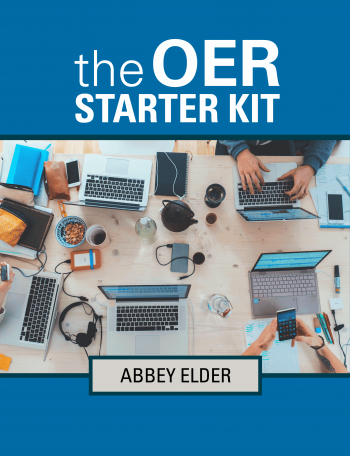
According to SPARC (the Scholarly Publishing and Academic Resources Coalition), OER are "teaching, learning, and research resources that are free of cost and access barriers, and which also carry legal permission for open use." Creative Commons licenses are often used to grant permission for re-use (see more on that below). Examples of OER include:
SPARC describes Open Access as follows: "the free, immediate, online availability of research articles coupled with the rights to use these articles fully in the digital environment." Creative Commons licenses are often used to grant permission for re-use (see more on that below). Most OA materials are published in a final iteration, and can be shared freely but not modified.
Open Educational Resources (OER) differ in that while they are also Open Access and freely available, they are also intended to be remixed, built upon, and further customized to suit the needs of different audiences within the education and learning environment. OER also extend to curriculum materials in addition to books and articles.
In short, just because it's online, freely available, and/or Open Access, doesn't necessarily mean that it is an Open Educational Resource. However, all Open Educational Resources are also Open Access.
 The OER Starter Kit
by
Abbey Elder
The OER Starter Kit
by
Abbey Elder
 Many researchers release their previously unpublished work under a Creative Commons (CC) license, that allows you to authorize some uses of your work, while preventing others. All CC licenses require others to provide attribution to you, if they use any part of your work. You may also choose to license your work only for non-commercial purposes, meaning that it can be used freely for research or teaching, but that no one else may profit from your work financially. CC licenses are legally valid, and can be downloaded and used at no charge.
Many researchers release their previously unpublished work under a Creative Commons (CC) license, that allows you to authorize some uses of your work, while preventing others. All CC licenses require others to provide attribution to you, if they use any part of your work. You may also choose to license your work only for non-commercial purposes, meaning that it can be used freely for research or teaching, but that no one else may profit from your work financially. CC licenses are legally valid, and can be downloaded and used at no charge.
 Freeing the Textbook
by
Julia E. Seaman; Jeff Seaman
Freeing the Textbook
by
Julia E. Seaman; Jeff Seaman
 An Open Education Reader
by
David Wiley, Editor
An Open Education Reader
by
David Wiley, Editor